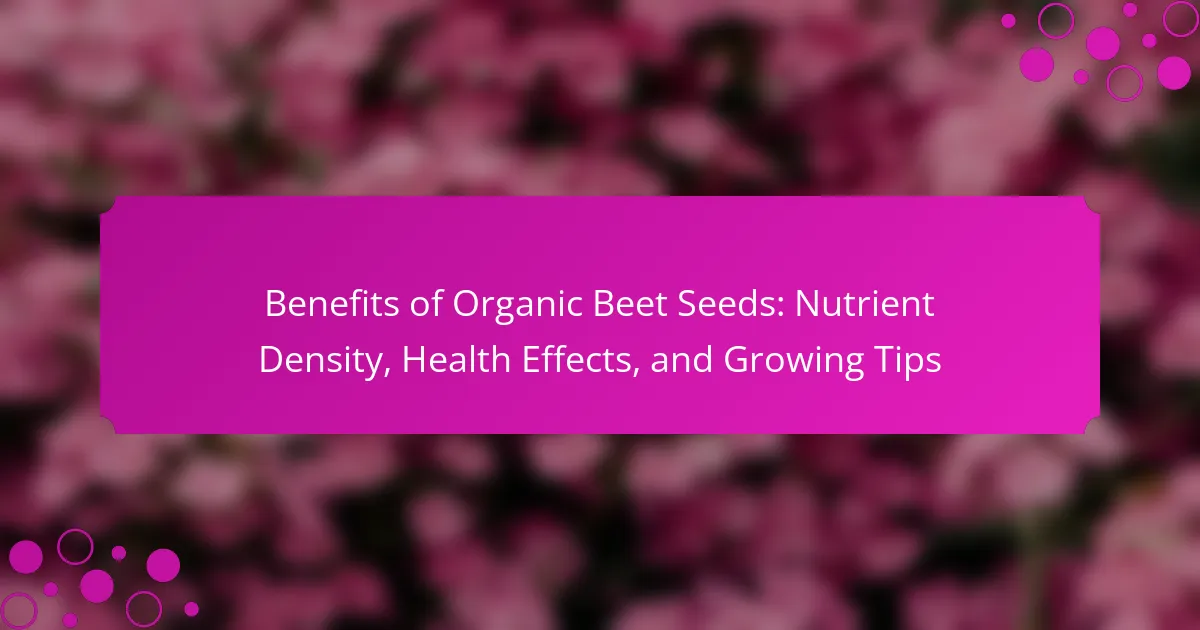Organic beet seeds are nutrient-dense, offering health benefits such as improved heart health, enhanced athletic performance, and support for digestion due to their high content of vitamins A, C, and K, as well as minerals like iron, magnesium, and potassium. However, cultivating organic beet seeds presents challenges, including the need for nutrient-rich soil, pest management […]
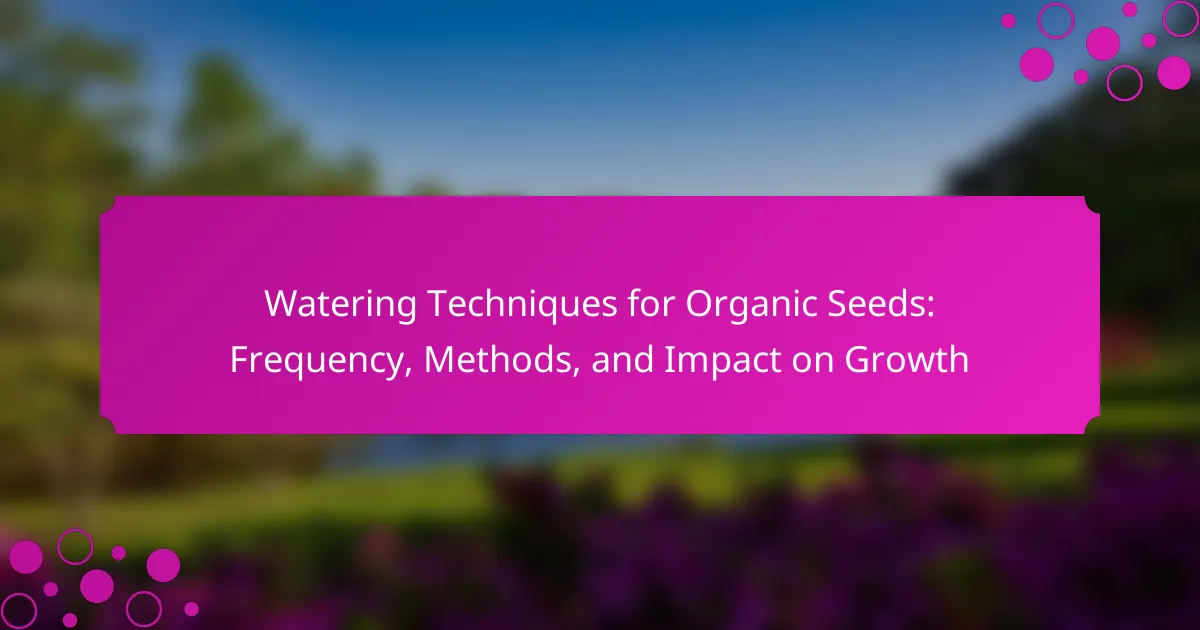
Watering Techniques for Organic Seeds: Frequency, Methods, and Impact on Growth
Watering techniques for organic seeds are essential for ensuring optimal germination and plant growth. Key methods include consistent moisture management and gentle application techniques, such as drip irrigation and soaker hoses, which effectively deliver water directly to the soil and reduce evaporation. Regular monitoring of soil moisture is critical, as both overwatering and underwatering can […]
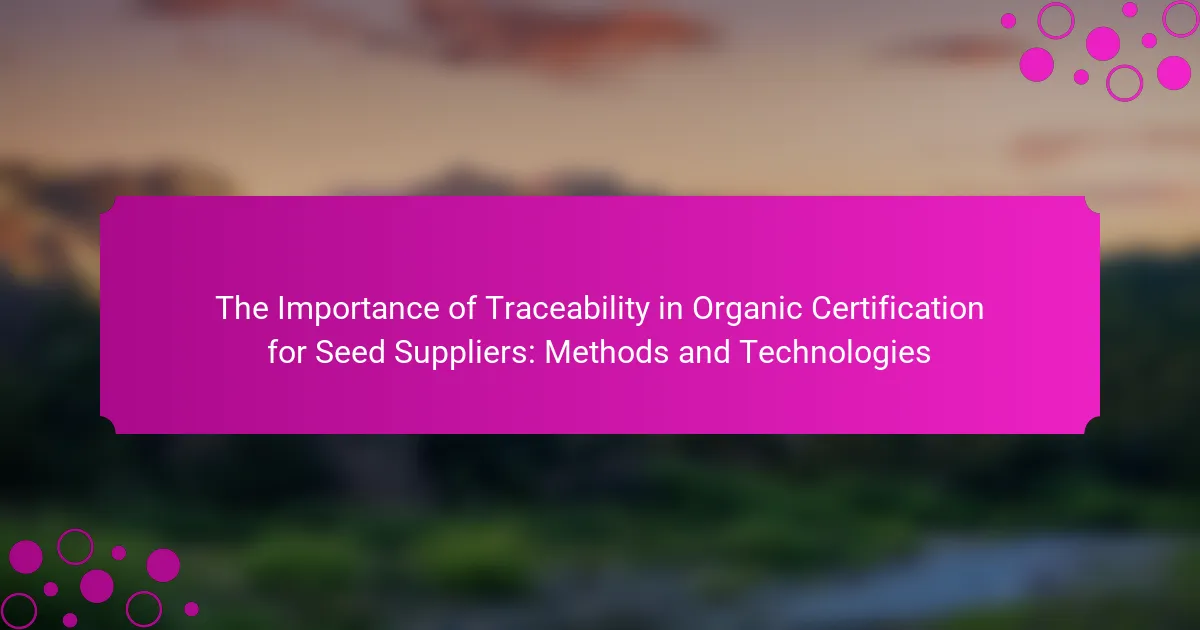
The Importance of Traceability in Organic Certification for Seed Suppliers: Methods and Technologies
Traceability in organic certification for seed suppliers is crucial for tracking and verifying the origin and history of organic seeds throughout the supply chain. This process involves documenting each step from seed production to distribution, ensuring compliance with organic standards set by regulatory bodies like the USDA National Organic Program. Effective traceability practices, including detailed […]
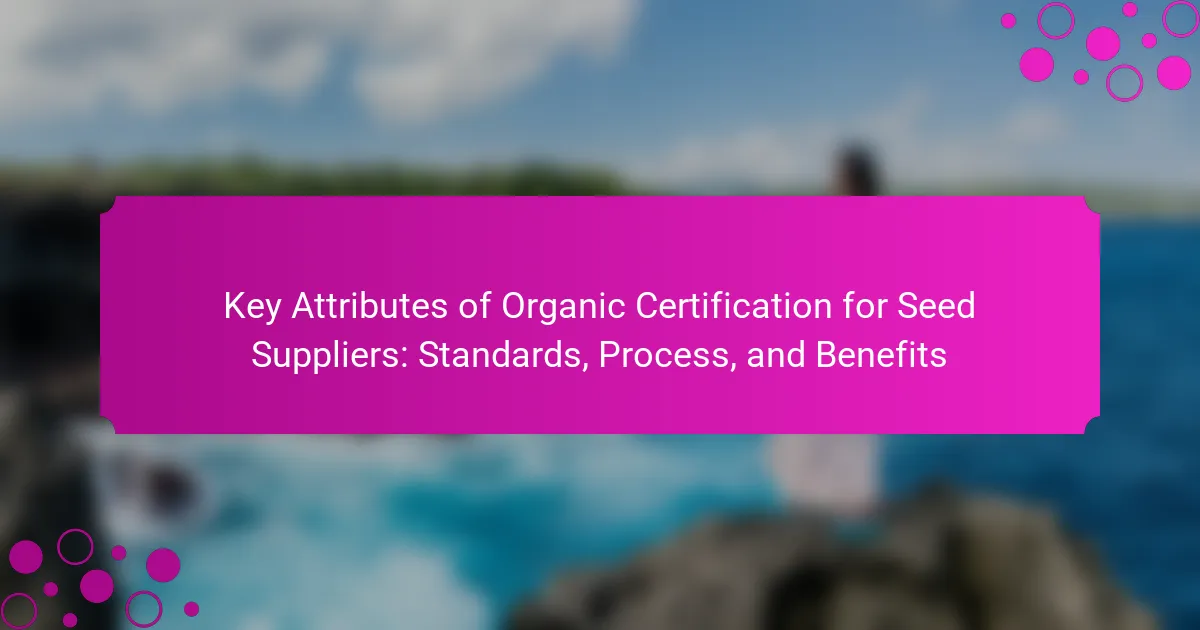
Key Attributes of Organic Certification for Seed Suppliers: Standards, Process, and Benefits
Organic certification for seed suppliers is a critical process that ensures compliance with established organic standards, traceability of seed origins, and confirmation of non-GMO status. These key attributes are vital for preserving organic integrity and building consumer trust. The article will outline the standards required for organic certification, the inspection processes that certified suppliers must […]
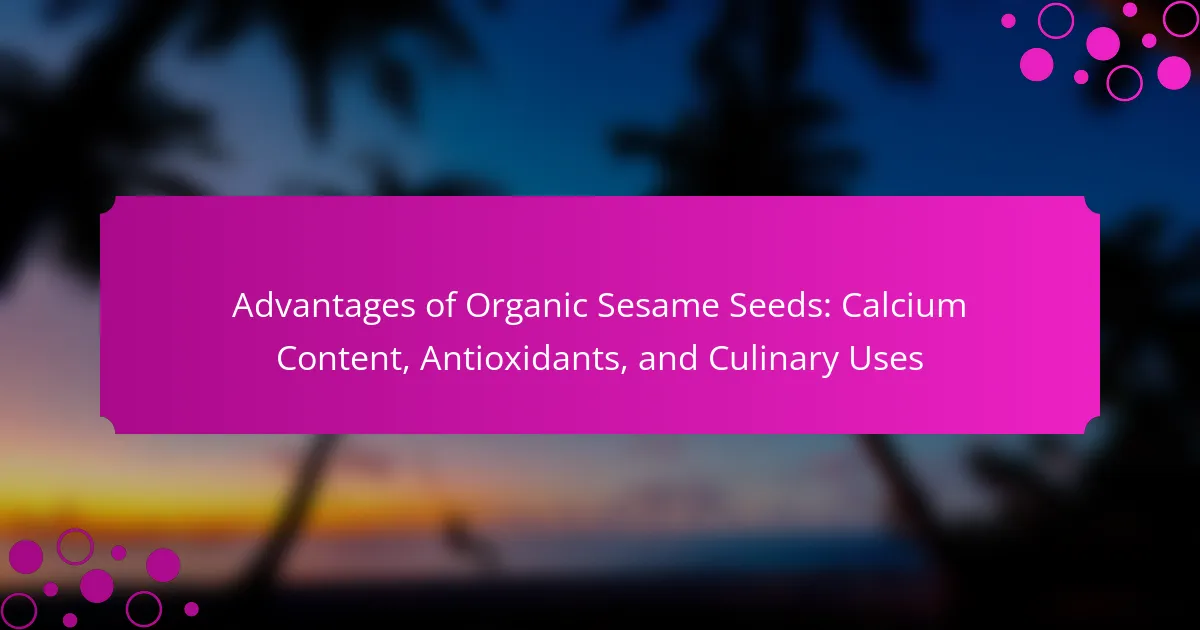
Advantages of Organic Sesame Seeds: Calcium Content, Antioxidants, and Culinary Uses
Organic sesame seeds are nutrient-dense seeds known for their high calcium content, providing approximately 975 mg per 100 grams, which supports bone health and helps prevent osteoporosis. They are also rich in antioxidants, including sesamolins and sesamin, which combat oxidative stress and reduce inflammation, lowering the risk of chronic diseases. Versatile in culinary applications, organic […]
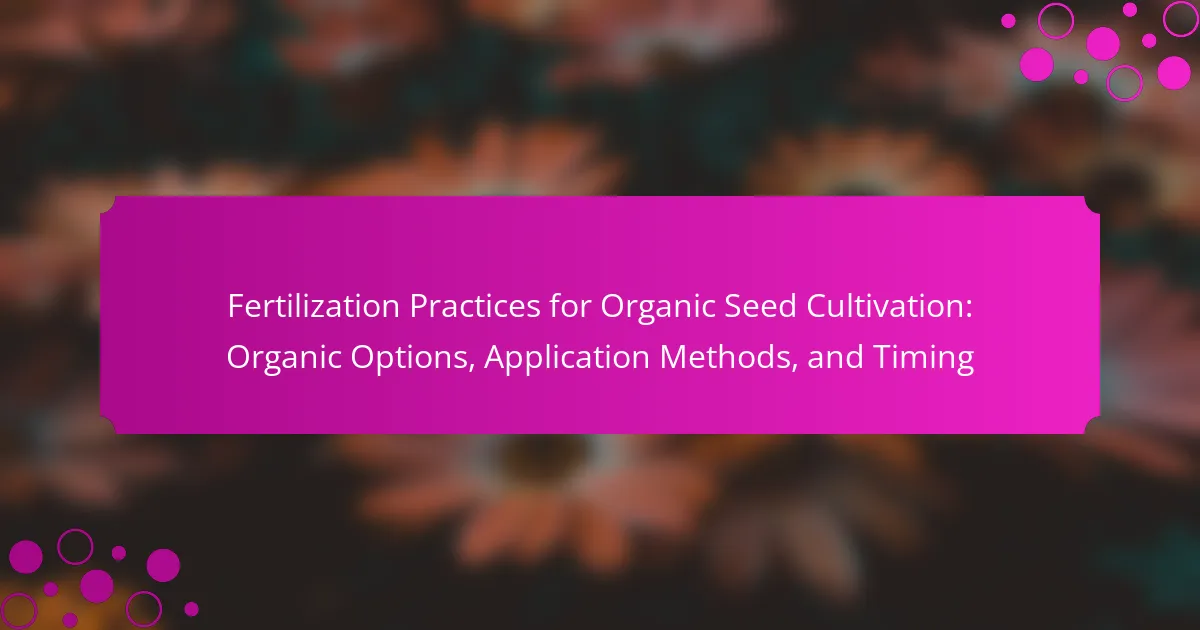
Fertilization Practices for Organic Seed Cultivation: Organic Options, Application Methods, and Timing
Fertilization practices for organic seed cultivation focus on enhancing soil fertility through natural inputs, including compost, green manures, and organic fertilizers. These methods improve soil structure and nutrient availability, supporting healthy plant growth while avoiding synthetic chemicals. The timing of fertilizer application is critical for maximizing crop yield and nutrient uptake, with research indicating that […]
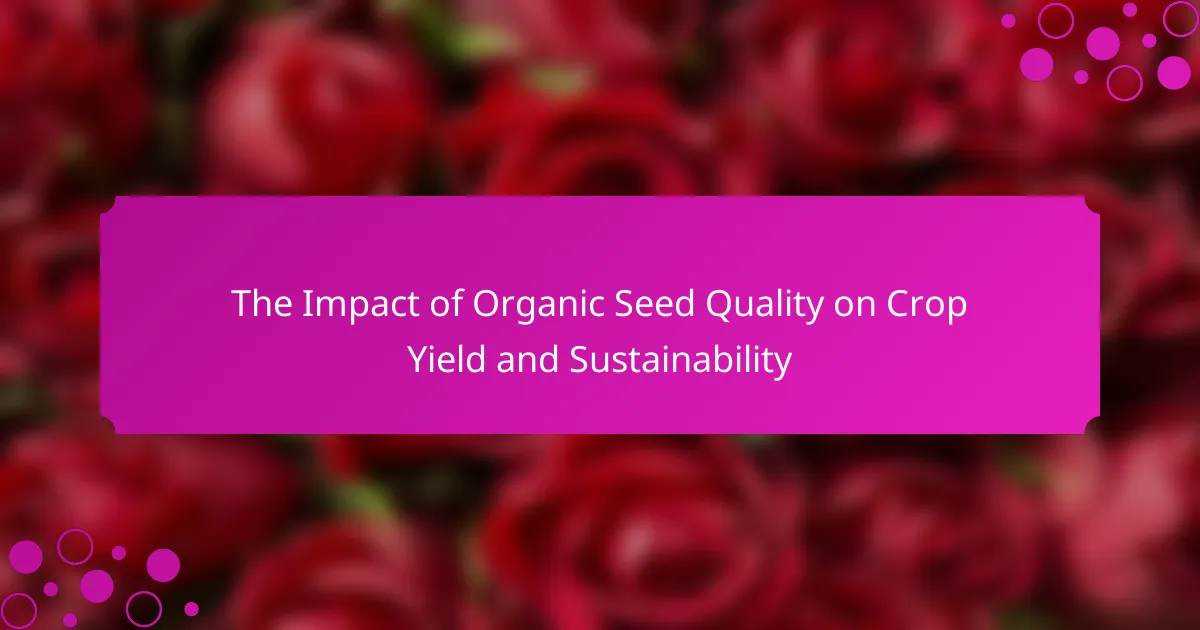
The Impact of Organic Seed Quality on Crop Yield and Sustainability
The main entity of this article is organic seed quality, which plays a critical role in determining crop yield and sustainability in agriculture. High-quality organic seeds are characterized by superior germination rates, vigor, and disease resistance, leading to stronger plants that can enhance soil health and increase crop yields by 10-20%. Key factors influencing organic […]

Organic Squash Seed Varieties: Taste Differences, Growth Requirements, and Recipe Ideas
Organic squash seed varieties include types such as zucchini, butternut, acorn, and spaghetti squash, all cultivated without synthetic fertilizers or pesticides. These seeds are recognized for their unique flavors, sizes, and growth habits, along with their environmental and health benefits. The article outlines the specific growth conditions required for organic squash, including soil quality, sunlight, […]
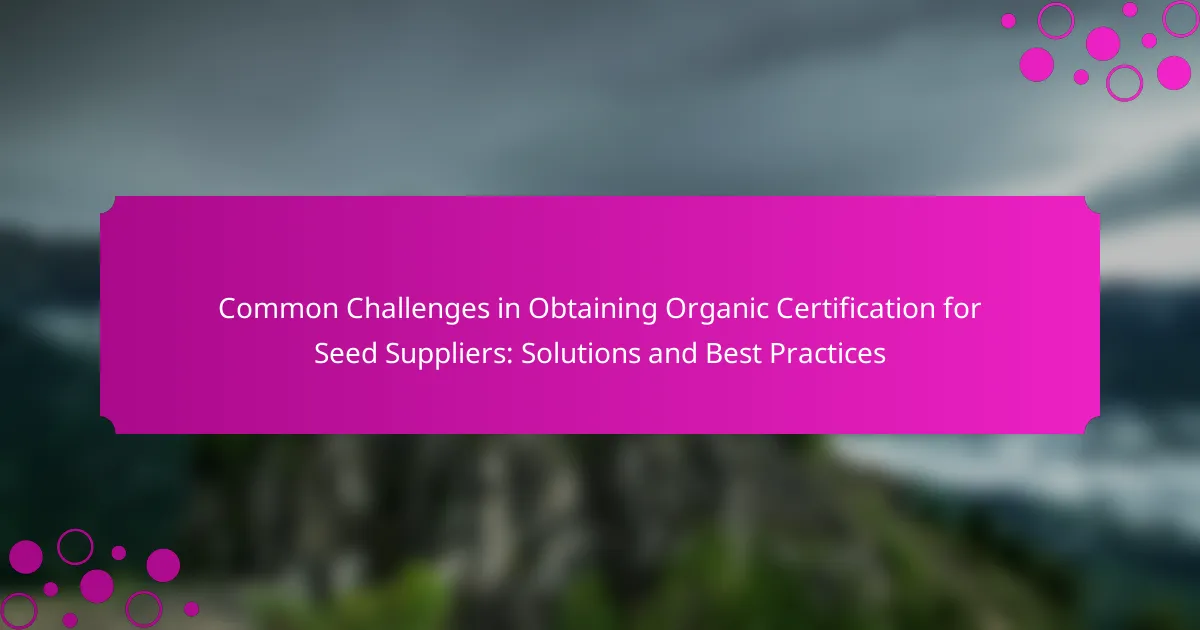
Common Challenges in Obtaining Organic Certification for Seed Suppliers: Solutions and Best Practices
Organic certification for seed suppliers involves meeting strict regulatory standards, including the prohibition of synthetic pesticides and fertilizers, and ensuring traceability throughout the supply chain. Key challenges include understanding organic practices, financial constraints related to certification costs, and the complexity of the certification process itself. Solutions to these challenges encompass thorough preparation, investment in training, […]
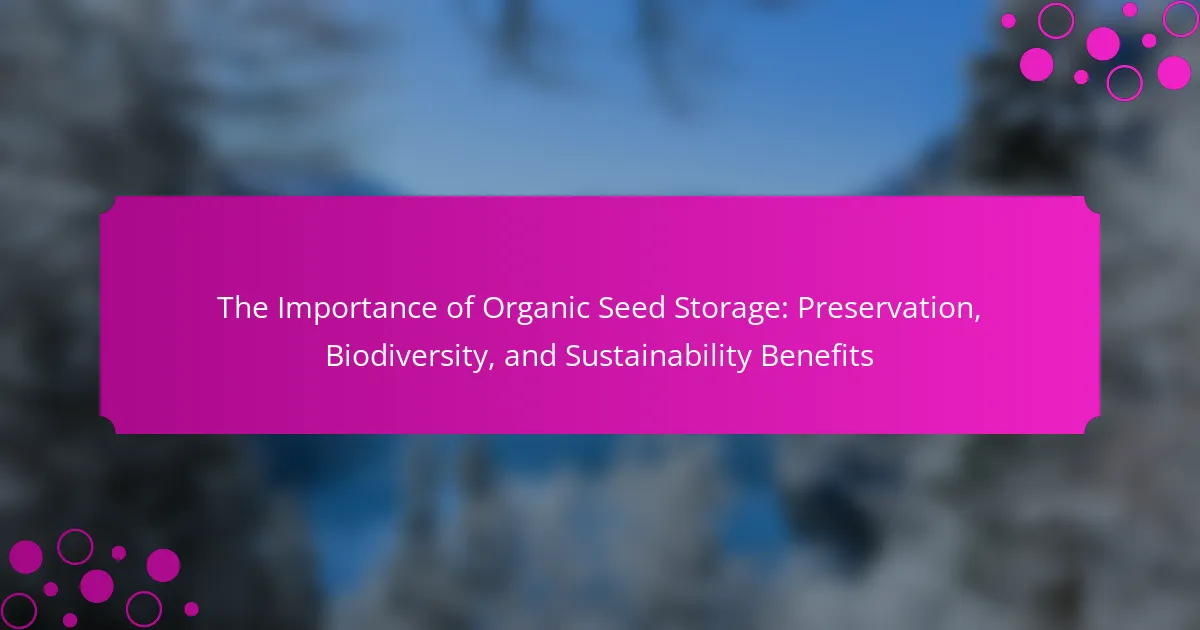
The Importance of Organic Seed Storage: Preservation, Biodiversity, and Sustainability Benefits
Organic seed storage is the practice of preserving seeds while maintaining their organic integrity, ensuring long-term viability without exposure to synthetic chemicals. This method involves controlling environmental factors such as temperature, humidity, and light to prevent seed degradation and loss of germination potential. By preserving heirloom and rare seed varieties, organic seed storage supports biodiversity […]
